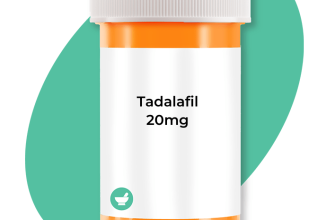If you’re dealing with a parasitic infection, Mebendazole can offer a straightforward solution without the need for a prescription. This medication effectively treats a range of worm infestations, including pinworms and roundworms, making it a reliable choice for those seeking quick relief.
Available over the counter, Mebendazole is designed to disrupt the metabolism of worms, ultimately leading to their elimination from the digestive system. Users typically experience results within a few days, allowing for a swift return to normal activities. It’s important to follow the recommended dosage on the packaging to ensure maximum efficacy.
Consulting with a healthcare professional before starting Mebendazole, especially if you have existing health conditions or are pregnant, is a wise decision. While this medication is safe for most adults and children over two years old, understanding your individual health context is key to an optimal treatment experience.
- Mebendazole No Prescription: A Comprehensive Guide
- Using Mebendazole Safely
- Identifying Infections
- What is Mebendazole and How Does It Work?
- Mechanism of Action
- Administration and Benefits
- Common Uses of Mebendazole Without Prescription
- Dosage and Administration Guidelines for Mebendazole
- Potential Side Effects and Risks of Mebendazole
- Where to Buy Mebendazole Without a Prescription
- Important Considerations Before Taking Mebendazole
Mebendazole No Prescription: A Comprehensive Guide
Mebendazole is available without a prescription in many regions, simplifying access for those needing treatment for intestinal worms. Confirm local regulations, as availability can vary based on country and pharmacy policies.
Using Mebendazole Safely
Before using mebendazole, understand the dosage guidelines. Adults typically take 100 mg twice daily for three days, while children’s dosages depend on their age and weight. Follow the instructions on the package or the guidance from a healthcare provider.
Monitor for side effects, which can include abdominal pain, diarrhea, or nausea. If symptoms persist or worsen, consult a healthcare professional. Mebendazole is usually well-tolerated but ensure no allergies to the medication exist.
Identifying Infections
Recognizing signs of worm infections aids in timely treatment. Symptoms may include abdominal discomfort, bloating, fatigue, or changes in weight. If these signs occur, mebendazole can help target common parasites like pinworms, roundworms, and hookworms.
For persistent issues, seek medical advice. A healthcare provider may recommend further testing or alternative treatments if necessary. Maintaining good hygiene practices can help prevent reinfections and protect others.
What is Mebendazole and How Does It Work?
Mebendazole is an anti-parasitic medication primarily used to treat infections caused by various types of worms, including pinworms, roundworms, whipworms, and hookworms. It works by inhibiting the growth and reproduction of these parasites, leading to their eventual death and removal from the body. The drug interferes with the parasite’s ability to absorb glucose, which is essential for their energy production, effectively starving them and disrupting their metabolism.
Mechanism of Action
The mode of action of mebendazole involves binding to the parasite’s β-tubulin, preventing the formation of microtubules, critical structures for cell division and function. Without functional microtubules, the worms cannot properly transport nutrients or maintain their cellular structure, resulting in their demise.
Administration and Benefits
Mebendazole is commonly available in oral form and can be taken with or without food. Its formulation allows for easy ingestion and effective absorption into the bloodstream. Many choose mebendazole due to its relatively low side effects and its efficacy in treating multiple types of worm infections. Moreover, it can be administered as a single dose in certain cases, providing convenience to users seeking quick relief from parasitic infections.
Common Uses of Mebendazole Without Prescription
Mebendazole treats various parasitic infections, particularly those caused by roundworms and flatworms. It’s readily available over the counter for effective self-treatment.
Patients commonly use Mebendazole to eliminate pinworms, especially in children. Symptoms include itching around the anus and disturbed sleep. A single dose often suffices, but repeat treatment may be necessary after two weeks.
This medication also addresses whipworm, hookworm, and roundworm infections. Symptoms can range from abdominal pain to diarrhea. Mebendazole typically requires a three-day regimen for effective results.
For strongyloidiasis, Mebendazole can be beneficial. Patients experiencing gastrointestinal symptoms should consult a healthcare provider if issues persist.
Mebendazole’s safety profile allows its use in adults and children over two years old. Pregnant women should avoid it unless prescribed, as it can impact fetal development.
Always follow package instructions for dosage and duration. If symptoms do not improve or worsen, seek medical advice to consider alternative treatments.
Monitor for side effects like abdominal pain or diarrhea and report any severe reactions. Mebendazole is a go-to for quick relief against common worm infestations.
Dosage and Administration Guidelines for Mebendazole
Mebendazole is typically administered based on the type of infection being treated. Follow these guidelines for optimal results:
- Adults and Children over 2 years:
- For pinworm infection: Take 100 mg as a single dose. A second dose may be given after 2-3 weeks if reinfection occurs.
- For roundworm, whipworm, or hookworm infections: Administer 100 mg twice daily (morning and evening) for 3 days.
- For more severe infections: 500 mg may be taken twice daily for 3 days, with medical guidance.
- Children under 2 years: Consult a healthcare professional for dosage recommendations.
Take mebendazole with or without food. If using chewable tablets, chew thoroughly before swallowing. Drink a full glass of water after swallowing to aid in absorption.
Adhere to the prescribed duration of treatment. Do not exceed the recommended doses to avoid potential side effects. Store at room temperature away from moisture and heat.
If symptoms persist or worsen after treatment, seek medical advice. Regular follow-up may be necessary to ensure the infection has cleared.
Potential Side Effects and Risks of Mebendazole
Mebendazole can cause several side effects. Most people tolerate it well, but being aware of potential adverse reactions is important.
Common side effects include:
| Side Effect | Frequency |
|---|---|
| Nausea | Occasional |
| Vomiting | Occasional |
| Abdominal pain | Common |
| Diarrhea | Common |
| Headache | Uncommon |
Rarely, more severe reactions can occur. Monitor for signs of an allergic reaction such as rash, itching, swelling, or difficulty breathing. If these symptoms arise, seek medical attention immediately.
Individuals with liver problems or pregnant women must consult healthcare providers before using mebendazole. Interactions with other medications can also occur, affecting its safety and efficacy.
Children under two should only use mebendazole under medical supervision due to an increased risk of side effects. Always follow dosage recommendations strictly.
Where to Buy Mebendazole Without a Prescription
For those seeking Mebendazole without a prescription, several avenues are available. Here are specific options to consider:
- Online Pharmacies: Numerous licensed online pharmacies offer Mebendazole. Check for pharmacies that require a consultation before purchase, as they ensure safe usage. Verify their credentials with regulatory bodies.
- Health Food Stores: Some health food stores stock Mebendazole in their supplement aisles. Inquire with staff to identify the right product for your needs.
- Local Drugstores: Off-the-shelf availability might exist in some local drugstores. Visit or call ahead to ask about stock.
- International Sources: Depending on your location, certain international suppliers may offer Mebendazole without prescription restrictions. Research shipping policies and customs regulations.
Always prioritize purchasing from reputable sources. Check for customer reviews and confirm that the seller operates within legal boundaries. Consulting a healthcare professional before usage is advisable to ensure safety and suitability.
Important Considerations Before Taking Mebendazole
Consult a healthcare professional if you are pregnant, nursing, or planning to become pregnant. Mebendazole can have effects on fetal development or be passed through breast milk.
Review any allergies prior to use. Mebendazole may cause reactions in individuals sensitive to the active ingredient or other components in the formulation.
Discuss existing medical conditions with your doctor. Those with liver diseases or gastrointestinal disorders should approach mebendazole with caution due to potential complications.
Check for potential drug interactions. Inform your healthcare provider about all medications, supplements, and herbal products you are taking to avoid adverse effects.
Adhere to the recommended dosage. Taking more than prescribed can lead to increased side effects without enhancing effectiveness.
Monitor for side effects. Report any unusual symptoms, such as severe abdominal pain, rash, or swelling, to a healthcare provider immediately.
Ensure you follow up with your doctor after treatment to verify the effectiveness of mebendazole and to discuss any further necessary steps.
Educate yourself about the symptoms of the infections mebendazole treats, such as intestinal worms, to better understand your treatment plan.










